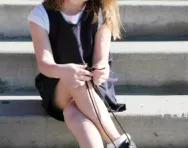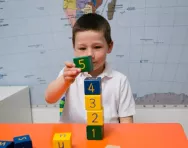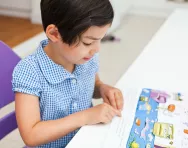Important update from TheSchoolRun
For the past 13 years, TheSchoolRun has been run by a small team of mums working from home, dedicated to providing quality educational resources to primary school parents. Unfortunately, rising supplier costs and falling revenue have made it impossible for us to continue operating, and we’ve had to make the difficult decision to close. The good news: We’ve arranged for another educational provider to take over many of our resources. These will be hosted on a new portal, where the content will be updated and expanded to support your child’s learning.
What this means for subscribers:
- Your subscription is still active, and for now, you can keep using the website as normal — just log in with your usual details to access all our articles and resources*.
- In a few months, all resources will move to the new portal. You’ll continue to have access there until your subscription ends. We’ll send you full details nearer the time.
- As a thank you for your support, we’ll also be sending you 16 primary school eBooks (worth £108.84) to download and keep.
A few changes to be aware of:
- The Learning Journey weekly email has ended, but your child’s plan will still be updated on your dashboard each Monday. Just log in to see the recommended worksheets.
- The 11+ weekly emails have now ended. We sent you all the remaining emails in the series at the end of March — please check your inbox (and spam folder) if you haven’t seen them. You can also follow the full programme here: 11+ Learning Journey.
If you have any questions, please contact us at [email protected]. Thank you for being part of our journey it’s been a privilege to support your family’s learning.
*If you need to reset your password, it will still work as usual. Please check your spam folder if the reset email doesn’t appear in your inbox.
19 questions to ask at the Reception starters’ meeting

With your child’s first day at school looming, meeting their new teacher is an important part of the settling in process. Some Reception teachers arrange a meeting for all new parents, some meet them one-to-one at school, and some visit you at home, but whatever the protocol at your child’s new school, this is your opportunity to ask any questions you might have.
Here are some of the questions you can ask that’ll help make your child’s transition to ‘big school’ as easy as possible.


Start the Reception Learning Programme today!
- Weekly maths & English worksheets direct to your inbox
- Follows the National Curriculum
- Keeps your child's learning on track
1. ‘What skills does my child need before starting school?’
Many parents spend the summer before their child starts school teaching them the alphabet and how to write their name, but most Reception teachers would prefer you to focus on practical skills, such as being able to get changed for PE independently, recognise their name on their coat peg and wipe their own bottom.
2. ‘Where do I take my child on the first day?’
The first day of school can be nerve-wracking for you and your child, and if you’re unsure about where you should be and when, your anxiety may rub off on your child. This is a good time to check where you should take your child on the first day: it may be different from the normal drop-off point.
3. ‘Where do they go at playtime?’
Worried about your tiny four-year-old being steamrollered in the playground by the hulking great Year 6s? Find out whether they have a separate play area, or whether break times are staggered so the little ones aren’t intimidated by the older children.
4. ‘What equipment does my child need?’
The Reception teacher can fill you in on what you need to send your child to school with. At this stage, they’re unlikely to need their own pencil case, but you may need to provide items like a water bottle and wellies or trainers for outdoor play.
5. ‘Do they need a school bag?’
Following on from the previous question, find out what sort of school bag your child needs: is there an official book bag, and if so, do you need to buy one or will they be given one? Peg space is often limited, so bulky backpacks may be discouraged. The same applies to PE bags.
6. ‘What if my child has trouble settling in?’
Many children struggle to settle in at school at first, but teachers have a wealth of experience in helping them adapt, and it can be reassuring to find out how they’ll handle any wobbles.
7. ‘What uniform do they need?’
You’ll be given an official list of school uniform, but Reception teachers can often offer handy hints about what you actually need to buy. For example, they might recommend that girls wear socks rather than struggling with tights on PE days, or disclose that it’s fine to buy plain polo shirts rather than the official logoed ones.
8. ‘How do I tell you who’ll be collecting my child from school?’
In the interests of safety, schools will ask you to inform them about who will usually pick your child up at the end of the day. They may have a password system if someone different will be collecting them, or ask you to tell them in the morning if they’ll be going home with a friend.
9. ‘What happens at lunchtimes?’
All Reception children are entitled to a free school lunch, and it can be helpful to find out what sort of things are offered in advance, and who’ll help your child if they need assistance choosing their lunch or cutting up their food. If you’re sending them with a packed lunch, find out if certain things (nuts, chocolate, fizzy drinks) are banned.
10. ‘Do I need to provide a snack?’
Children will need a mid-morning snack to keep them going, so find out whether this is provided by the school, or whether you need to supply it – and if so, what it should be. You can also find out whether you need to sign your child up to have milk at school.
11. ‘When will my child have PE?’
This is helpful to know, not just so you know when your child’s PE kit needs to be at school, but also so you can dress them in clothes that are easy to take off and put back on again.
12. ‘What if my child still has accidents?’
Many Reception children are less than reliable at using the loo, and even children who’ve been toilet trained for years can slip up. Staff will be used to dealing with accidents, but it might put your mind at rest to keep a bag of spare clothes at school, for example.
13. ‘How are literacy and numeracy taught?’
Reading, writing and maths are taught very differently from when we were at school: for instance, many new parents have never heard of phonics – the system for teaching children to read. Your child’s new teacher may have hand-outs explaining their teaching methods so you can help them at home. TheSchoolRun also has complete guides to what your child learns in Reception maths, Reception English and Reception science.
14. ‘How can I support my child’s learning?’
Formal homework is rarely set in Reception, but the teacher will be able to tell you what sort of things you can be doing at home to supplement what they’re doing in the classroom, such as playing word or number games, testing your child on their phonics, hearing them read and reading to them at bedtime.
15. ‘When are reading books sent home and changed?’
Schools will differ in when they start sending reading books home. Some will send them from the start of term; others may not until much later on, when kids have got a grasp on phonics. You can also ask on which days your child's books will be changed, so you can make sure you get through them in good time.
16. ‘What do I do if my child is sick?’
Bugs can spread quickly throughout schools, so you’ll need to find out about absence protocols, such as how you should notify the school if your child is off sick, and how long you need to keep them at home if they have a vomiting bug or headlice.
17. ‘Can we take our child out of school for a holiday?’
Schools are not supposed to authorise term-time holidays, and parents have been fined for taking their children out of school. Some schools are more flexible with Reception children who are not yet of compulsory school age (the beginning of the term after they turn five), but check before you book anything.
18. ‘When will our first parents’ evening be?’
This will be your first chance to find out properly how your child is getting on at school, so it’s helpful to know when it’ll be so you can store up questions. Our beginner's guide to parent-teacher meetings will help you prepare!
19. ‘How do I contact you if I have a question or worry?’
We all need to speak to the teacher every now and then. Small queries may be dealt with by having a quick word in the playground or writing a note in your child’s reading diary, while for bigger concerns, you may need to email them or ask the office to arrange a meeting. But whatever the issue, knowing that you can reach your child’s teacher will give you peace of mind.








